The Art of Science—Versailles at the Science Museum, London
Have you ever wondered how it would feel to witness the grandeur and opulence of the 18th-century French court? Then you might want to go to London.
Edoardo Cesarino 19 December 2024
The Venice Biennale is considered the world’s most famous international exhibition of contemporary art. Since its official opening in 1895, the Biennale has continued to expand, cross boundaries, and ask thought-provoking questions. This year, at the 59th International Art Exhibition, curated by Cecilia Alemani, we can admire the event titled The Milk of Dreams. In this article you can find my recommendations of works and projects connecting art and technology.
The exhibition of the Venice Biennale 2022 takes place in two locations – the Central Pavilion (Giardini) and the Arsenale. It includes 213 artists from 58 countries; 180 of whom are participating for the first time in the International Exhibition. There are 1433 works and objects on display and 80 new projects are created specifically for the Biennale Arte.
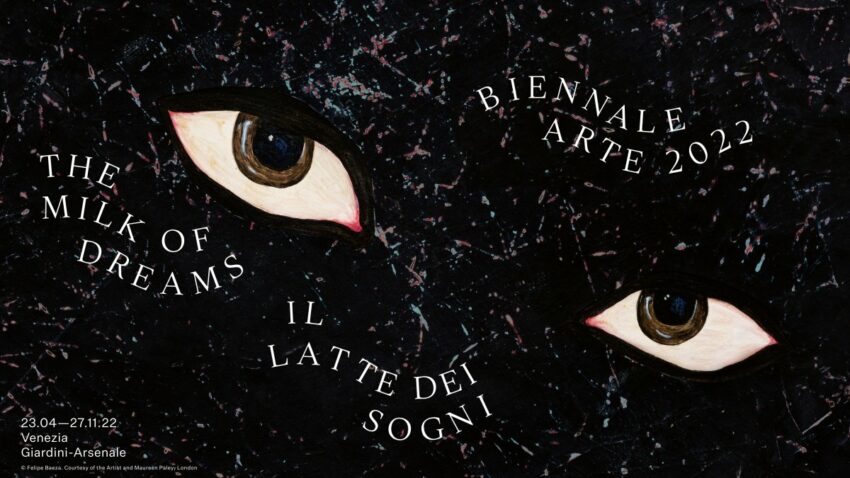
The Milk of Dreams poster, 59th International Art Exhibition – Venice Biennale, 2022.
The Milk of Dreams takes its title from a book by Leonora Carrington (1917–2011) in which the Surrealist artist describes a magical world where life is constantly re-envisioned through the prism of the imagination. It is a world where everyone can change, be transformed, and become something or someone else.
La Biennale di Venezia.
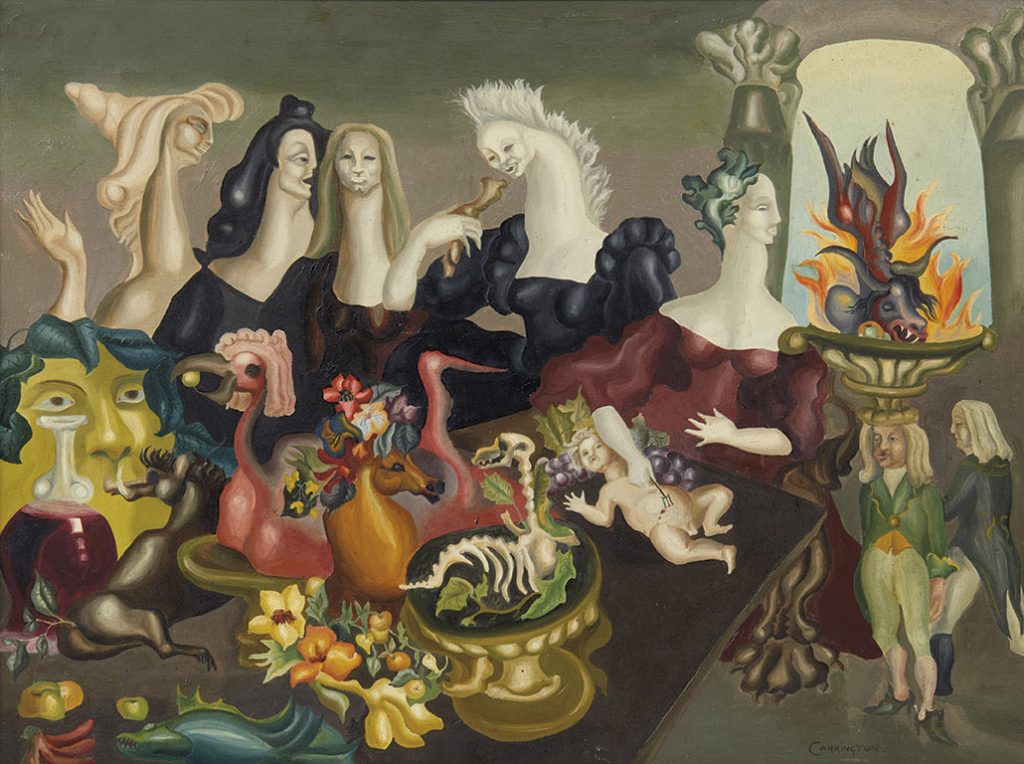
Leonora Carrington, The Meal of Lord Candlestick, 1938. La Gazette Drouot.
Learn more about Leonora Carrington here.
And I must admit that it was an imaginary journey for me and, in each room, I have discovered new art but also new thoughts and visions in my own self. The Exhibition is an impulse for retrospection and shows how art has always been an important instrument to make us feel uncomfortable and, through that, grow. It was also great to see so many female artists and so many of them from regions that have been presented at the Biennale for the first time, such as the Republic of Cameroon, Namibia, Nepal, the Sultanate of Oman, and Uganda.
What I was looking for the most was the connection between art and technology and the questions that come from this merge.
The Exhibition The Milk of Dreams takes Leonora Carrington’s otherworldly creatures, along with other figures of transformation, as companions on an imaginary journey through the metamorphoses of bodies and definitions of the human. These are some of the guiding questions for this edition of the Biennale Arte, which focuses on three thematic areas in particular: the representation of bodies and their metamorphoses; the relationship between individuals and technologies; the connection between bodies and the Earth.
La Biennale di Venezia.
In the Korean Pavilion, you can see the works of Yunchul Kim – a multidisciplinary South Korean artist who creates complex art pieces as an interconnection of science, technology, physics, math, and philosophy. With the use of advanced technology and scientific knowledge, his art resembles giant sculptures placed in the middle of a laboratory instead of an art gallery. At the Giardini, we can see five of his works in a collection called Argos – The Swollen Sun, Impulse, Flare, Chroma V, and The Dust of Sons.
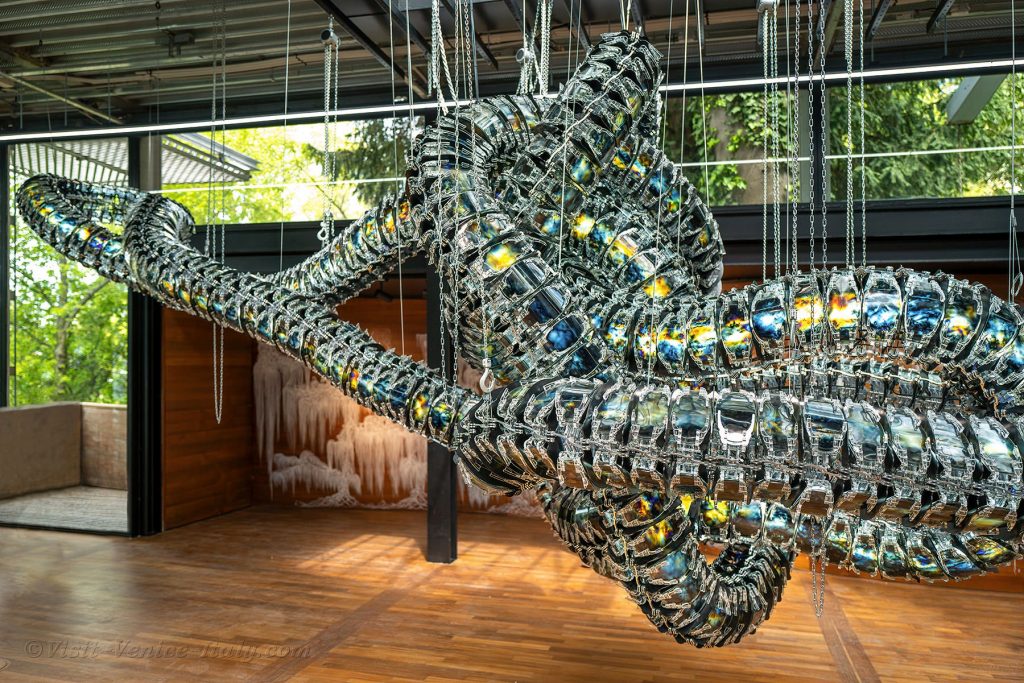
Installation view: Yunchul Kim, Chroma V Gyre, 59th International Art Exhibition – Venice Biennale, 2022. Visit Venice Italy.
Argos – the Swollen Sun is a large sculpture with a system consisting of several hundred glass tubes that flash when they detect muons, cosmic particles that are created when colliding with the Earth’s atmosphere. After detection, it sends signals (the information of muons colliding) to other kinetic installations in the exhibition and triggers their movement.
Impulse hangs in the air and allows fluid to flow through its pumps. It is supposed to pump seawater from Venice Lagoon and circulate it through its 200-meter-long tubes which aim to connect the pavilion with its natural environment.
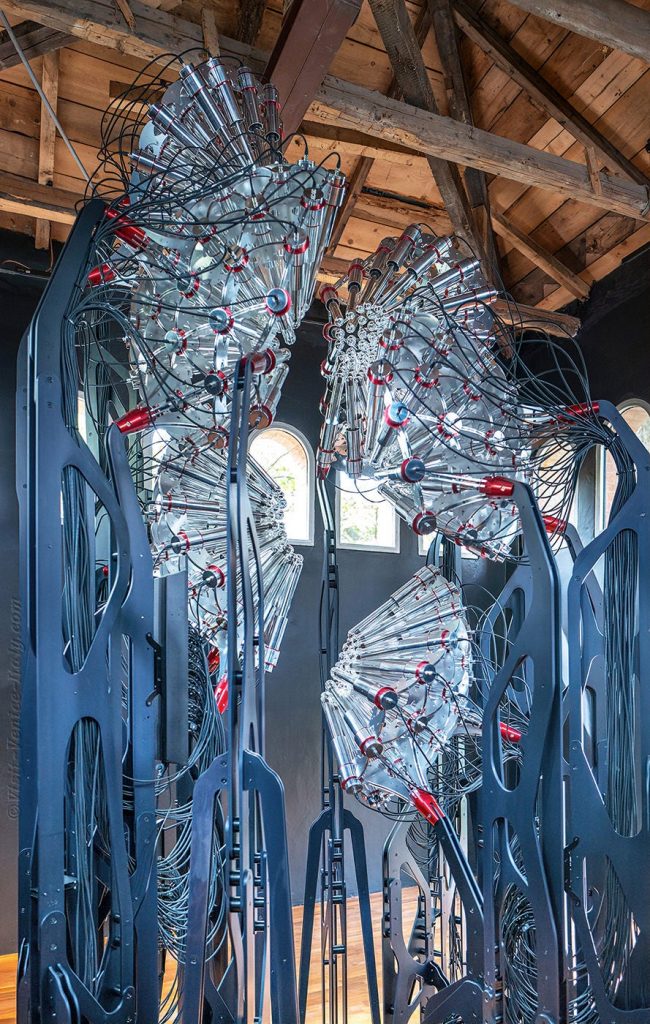
Installation view: Yunchul Kim, Argos The Swollen Sun, 59th International Art Exhibition – Venice Biennale, 2022. Visit Venice Italy.
Chroma V consists of a 50-meter-long structure that looks like a giant snake folded into a big, complicated knot. The curves of the knot are mathematically generated, the process of which is determined by physics-based algorithms. The signals generated by Argos-The Swollen Sun detect muons and impact the movement of Chroma V‘s cells. It is a moment when the “snake” comes alive.
In the Egyptian Pavilion, you can see an artificial intelligence media installation that mimics the female womb. Organic forms suspended from the ceiling are covered with AI-generated moving images that are a result of feeding the open source machine learning software with philosophical and existential concepts about the nature of the universe.
You can see it below:
The Teaching Tree in the Saudi Arabian Pavilion of the Biennale is a large-scale installation covered in dried, painted palm fronds and animated by pneumatics. The work literally seems to live and breathe. The artist, Muhannad Shono was inspired by the figure of Al Khidr to investigate life cycles and the power of nature and regeneration. In the Quran, al-Khidr is described as the Servant of God with Knowledge, a messenger, a prophet, and an angel who guards the sea.
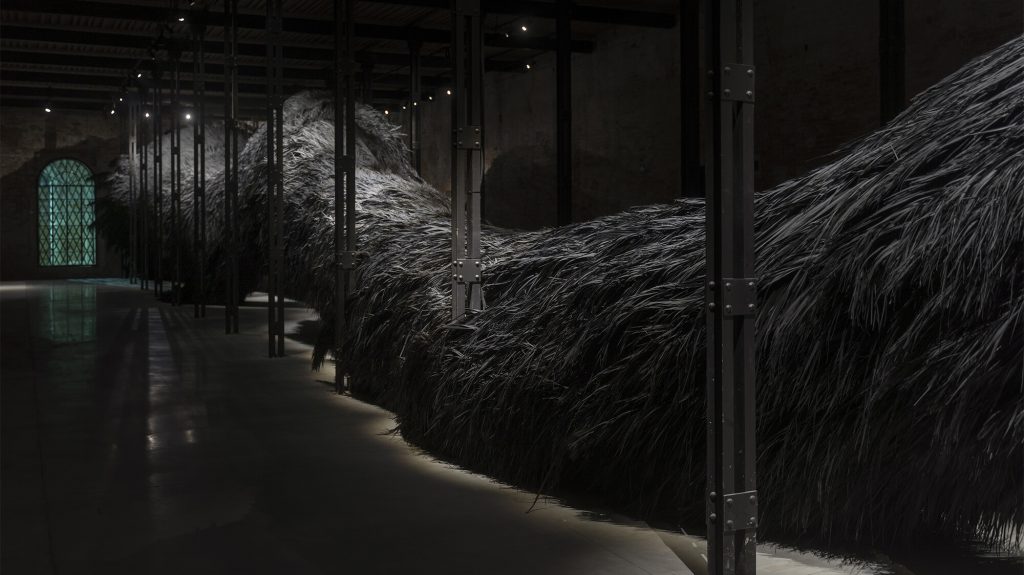
Installation view: Muhannad Shono, The Teaching Tree, 2022, 59th International Art Exhibition – Venice Biennale, 2022. Courtesy of Samuele Cherubini/E-Flux.
Elias Sime is an Ethiopian artist creating large-scale abstractions made from thousands of electrical wires, type keys, microchips, and computer hardware components.
The use of those materials is not accidental. For Sime, their history holds meaning and suggests our interconnected world through all tradition and progress, human contact and social networks, nature and objects made by men, and physical and virtual worlds. At the Venice Biennale, he presented his new compositions titled Red Leaves; two Veiled Whispers. The patterns and colors that he uses seem to be subtly figurative and realistic and you have to come very close to the works to be able to see the materials they were made of and recognize the electronic components.
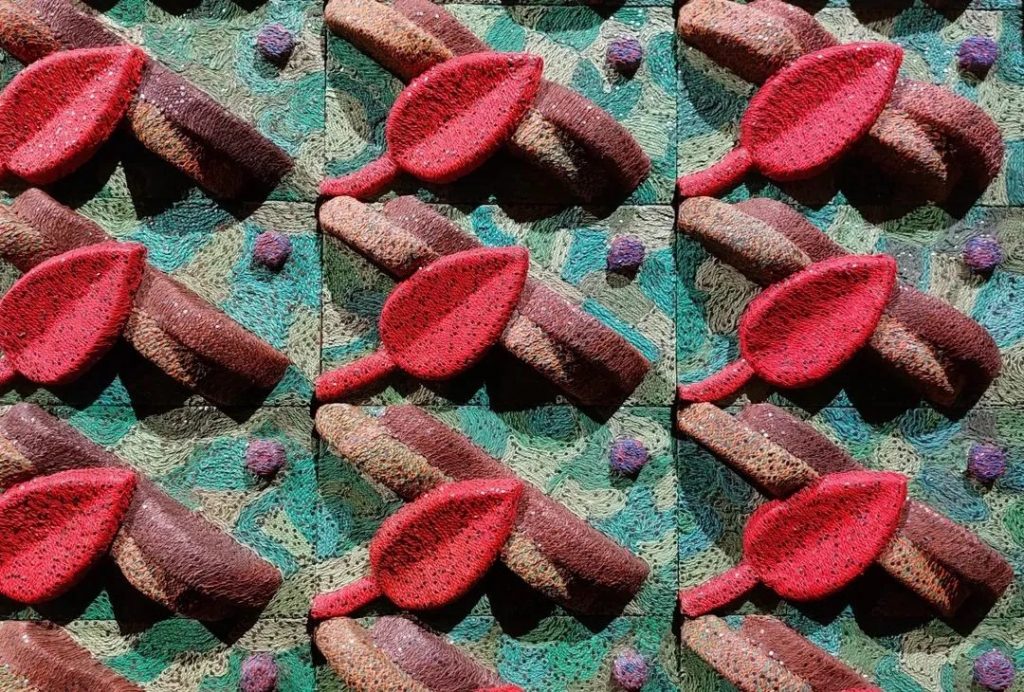
Elias Sime, Red Leaves; two Veiled Whispers, 2021, 59th International Art Exhibition – Venice Biennale, 2022. Barbara Picci.
Part of the exhibition is dedicated to the concept of a “cyborg” which was first used in the 1960s by scientists Manfred E. Clynes and Nathan S. Kline. The cyborg is a human that has become integrated with artificial technology, giving it some extra functions or abilities. In today’s world, the barriers between humans, machines, and animals are blurred and artists have had a great fascination for such mechanical hybridity.
The exhibition displays works of such artists as Giannina Censi, Alexandra Exter, Marie Vassilieff, Karla Grosch, and Elsa von Freytag-Loringhoven – each of whom represents a different attitude to this topic from very radical to holistic. It brings together various concepts over the course of the 20th century and the future of posthuman and postgender that they imagined. I wonder what the fusions might be at the next Venice Biennale.
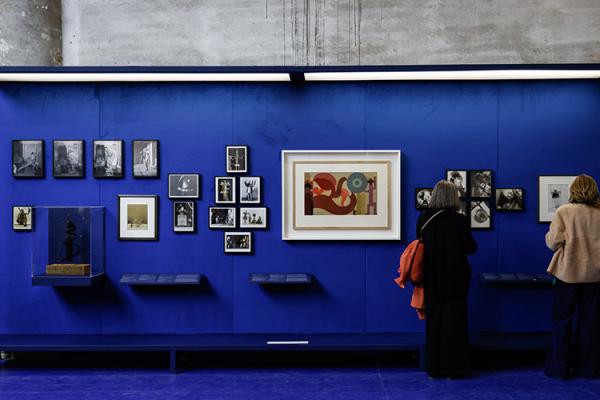
Seduction of the Cyborg, 59th International Art Exhibition – Venice Biennale, 2022. La Biennale di Venezia.
The 59th International Art Exhibition, Venice Biennale 2022 can be seen till November 27, 2022, in Giardini and Arsenale.
Opening times, 2022:
April 23 – September 25, 11 am–7 pm
September 27 – November 27, 10 am–6 pm
Closed on Mondays (except April 25, May 30, June 27, July 25, August 15, September 5, September 19, October 31, and November 21).
DailyArt Magazine needs your support. Every contribution, however big or small, is very valuable for our future. Thanks to it, we will be able to sustain and grow the Magazine. Thank you for your help!